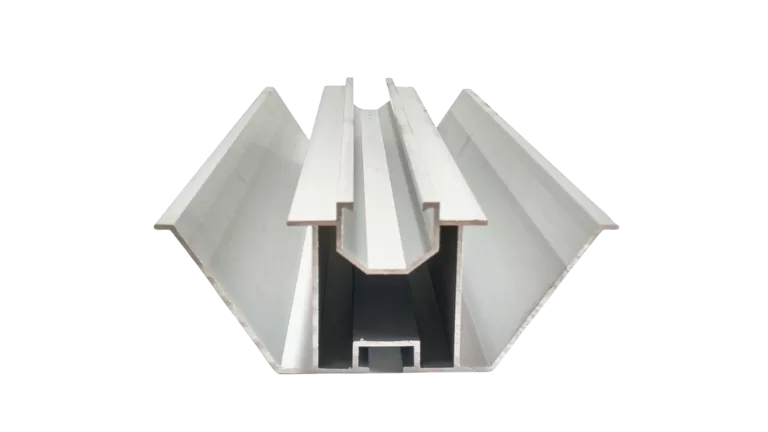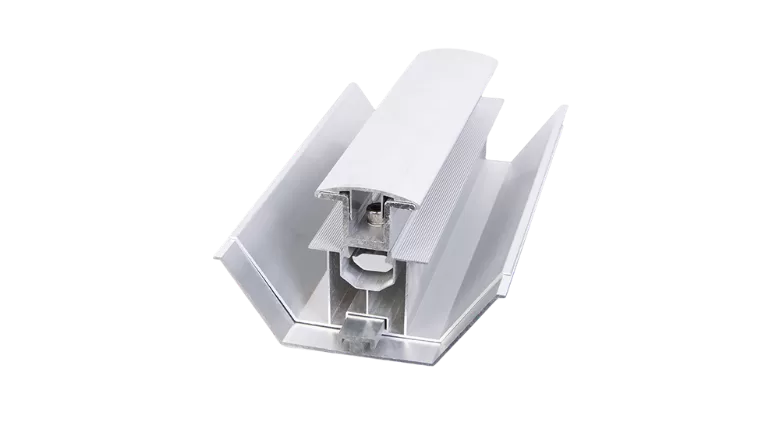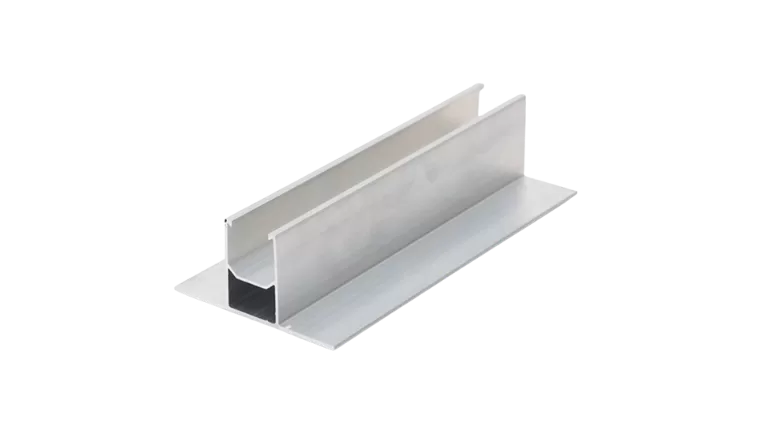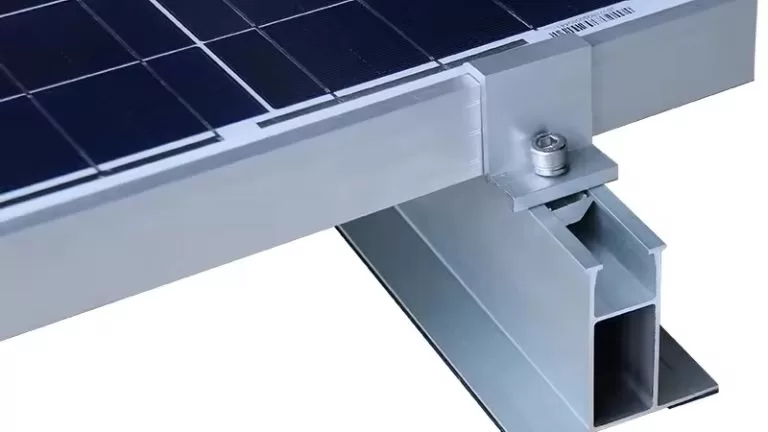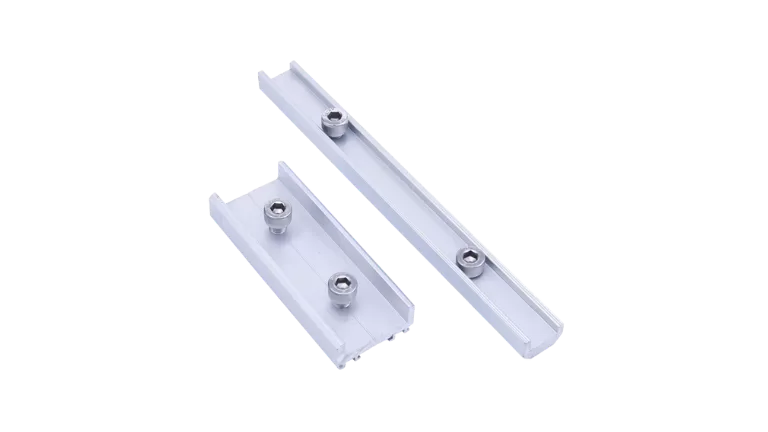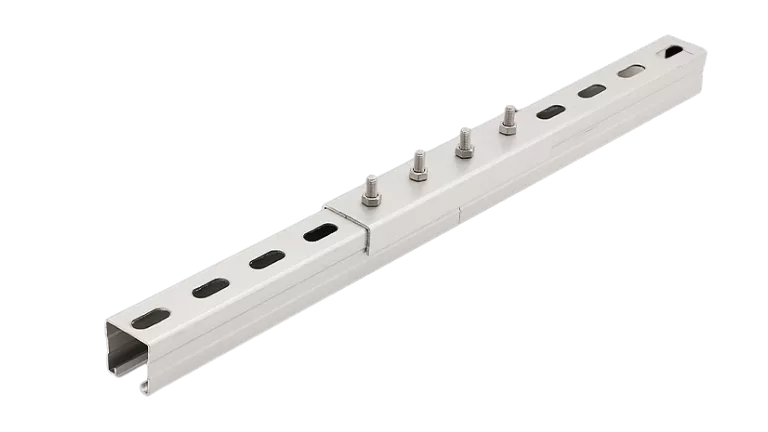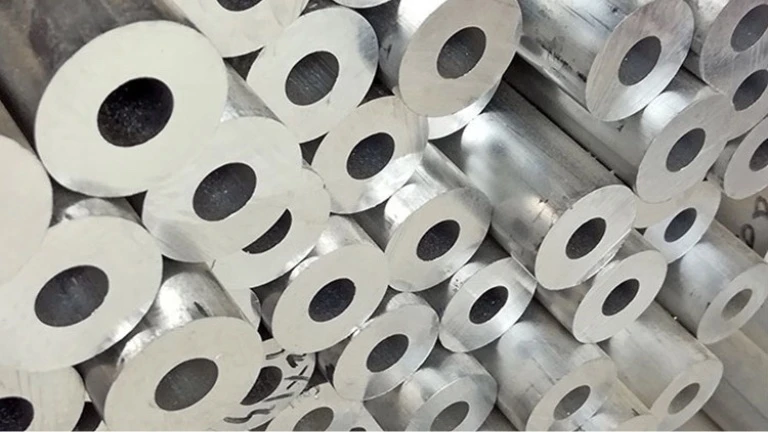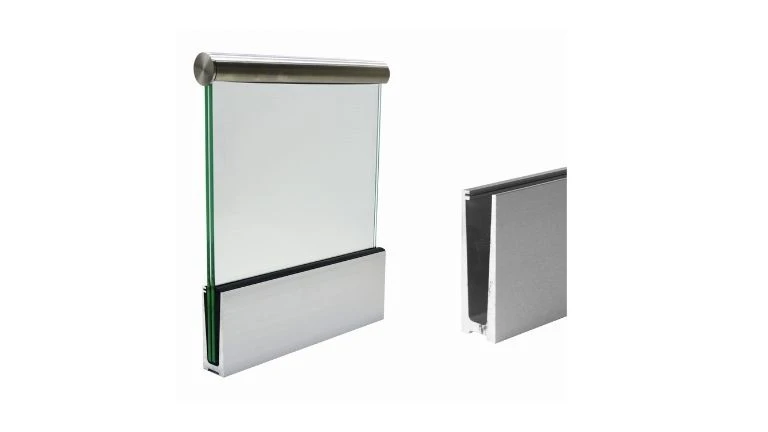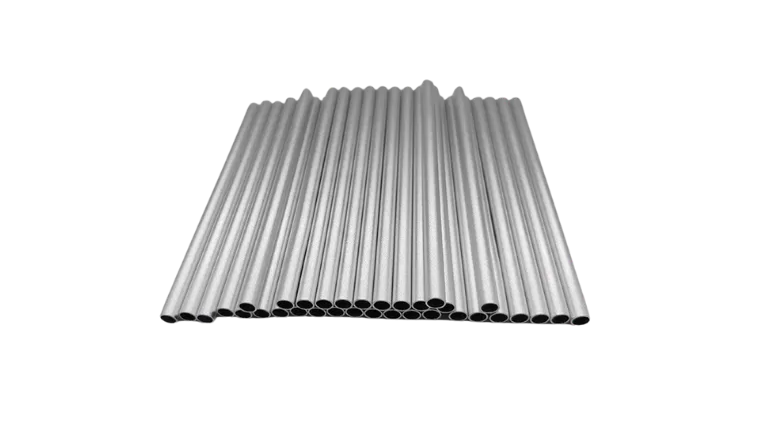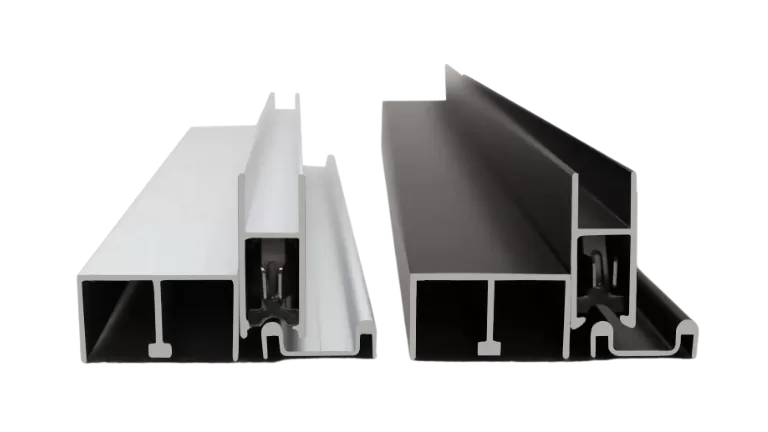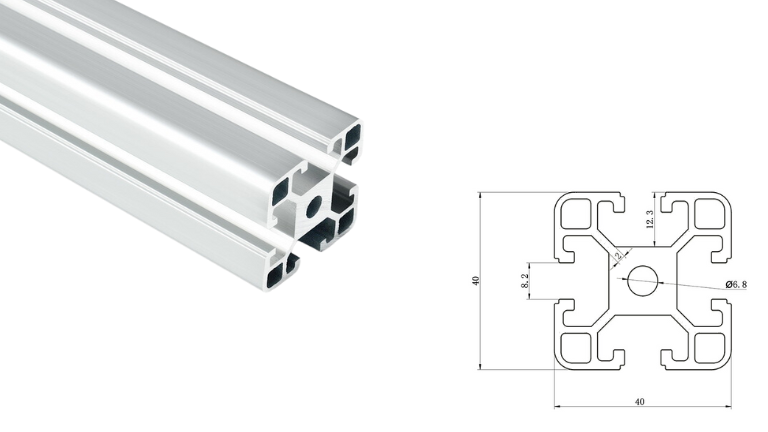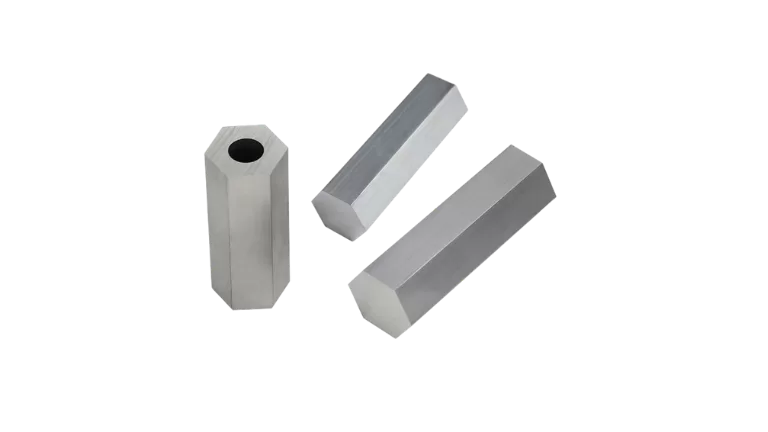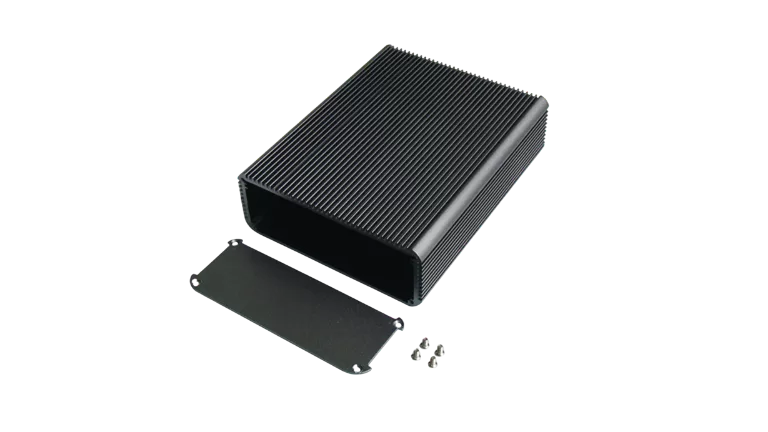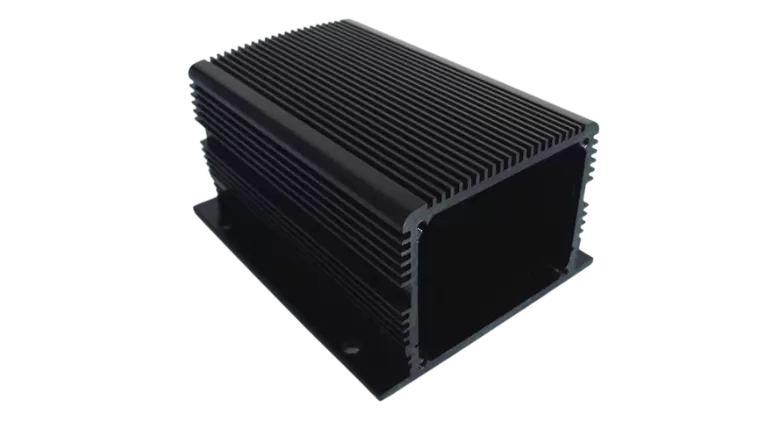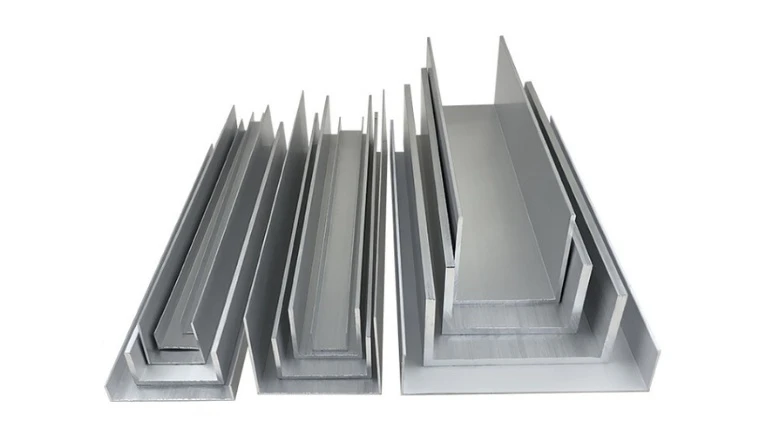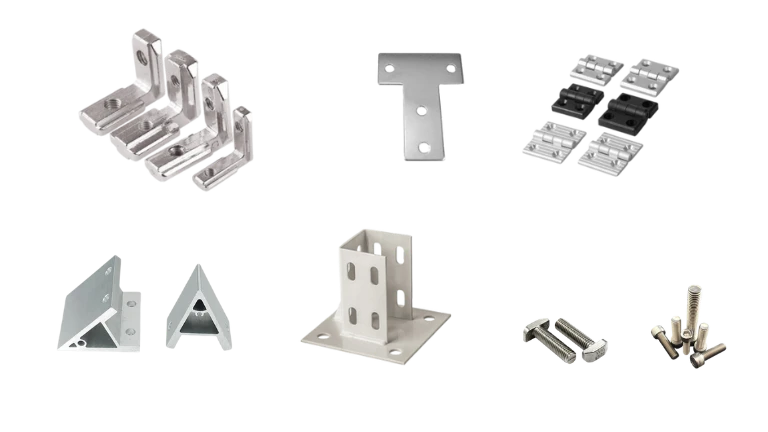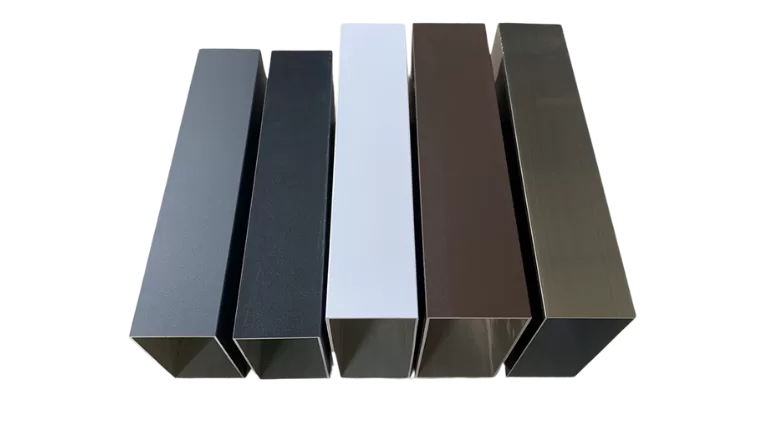Aluminium Solar Panel Mounting Rails
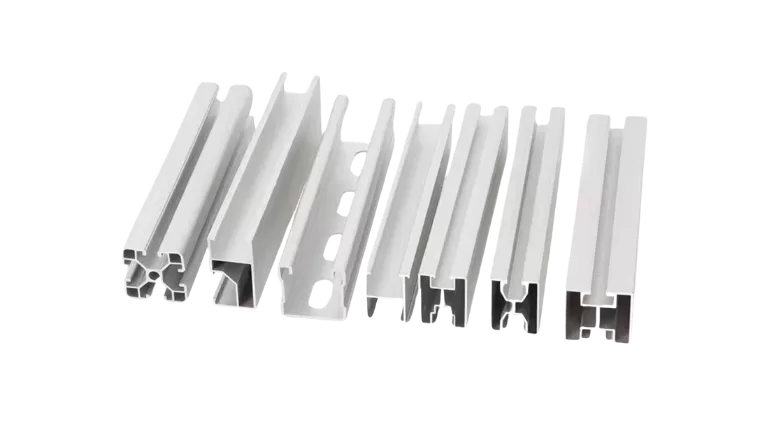
Aluminium Solar Panel Mounting Rails are widely used in solar panel installations due to their lightweight, high strength, and corrosion resistance. These rails provide durable support for solar panels in residential and commercial applications, withstanding harsh outdoor environments. The natural oxide layer on aluminium protects against corrosion from rain, humidity, and salt. Aluminium is also highly customizable, easily shaped to suit diverse installation needs, and 100% recyclable, making it an efficient and sustainable choice for solar energy systems.
We HTS-ALU specializes in custom aluminium extrusion profiles, ensuring each component is tailored to match client requirements with precision and high-quality standards.
Common Types of PV Mounting Rails
Aluminium PV mounting rails come in various types to meet specific needs. These include L-shaped rails for lightweight installations, C-shaped rails for added strength, U-shaped rails for load distribution, and W-shaped rails for structural support and water diversion in BIPV systems. T-slot rails, like the 4040 profile, are ideal for modular setups, while mini rails are compact solutions for low-profile systems. Rail connectors are used to join rails securely, ensuring stability and extending their length. These components offer versatility and efficiency for a wide range of applications.
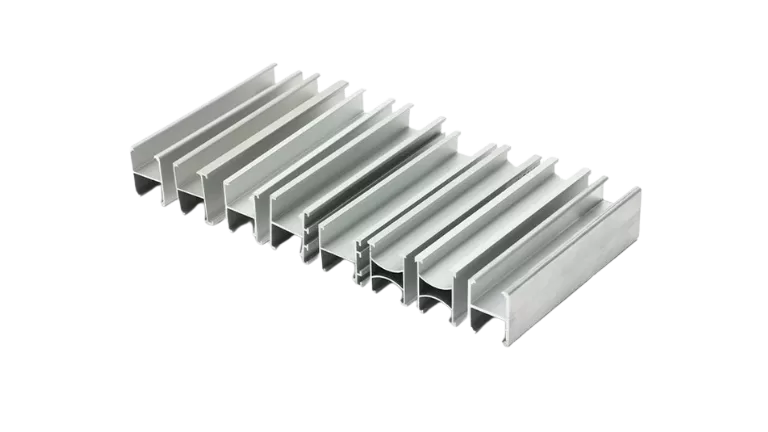
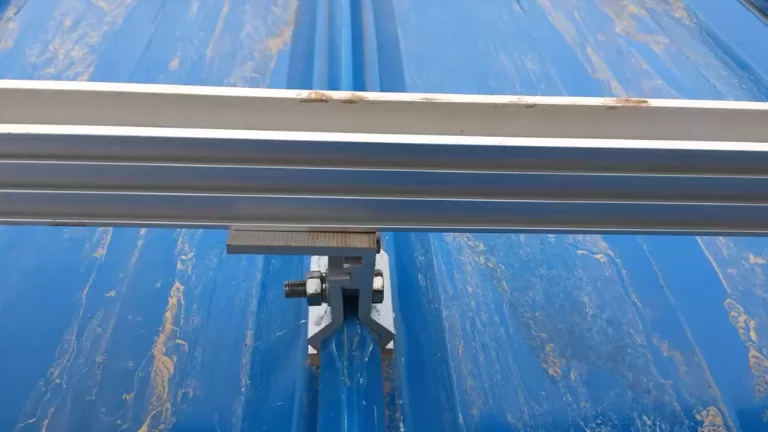
H-Type Solar Panel Mounting Rail
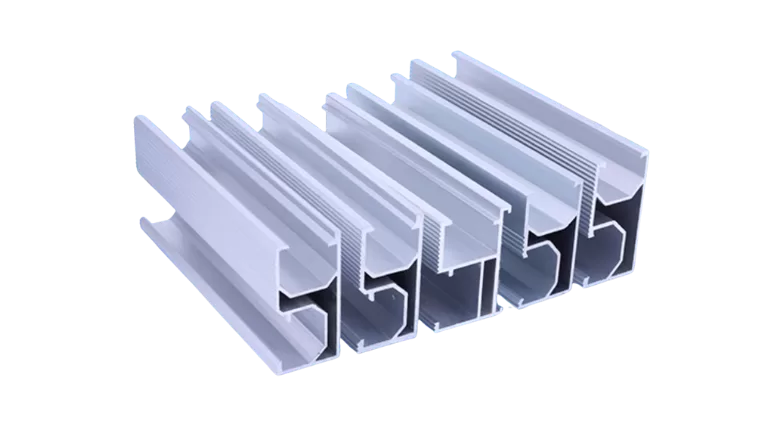
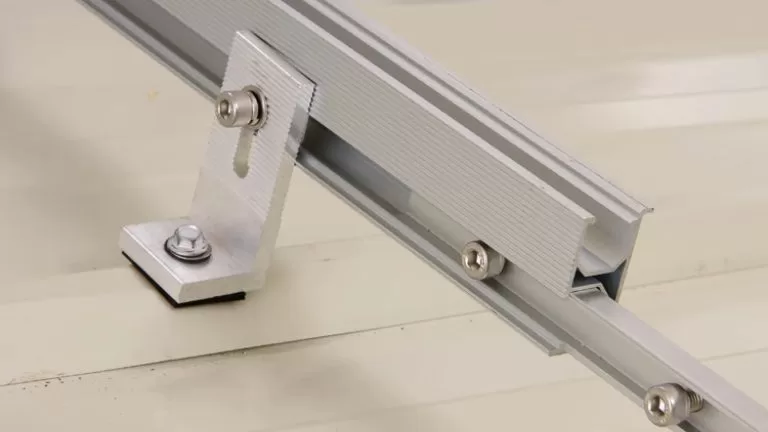
L-Shaped Solar Panel Mounting Rail
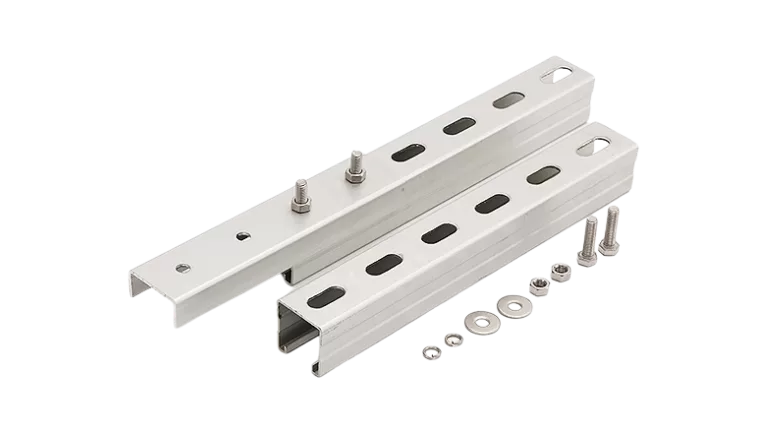
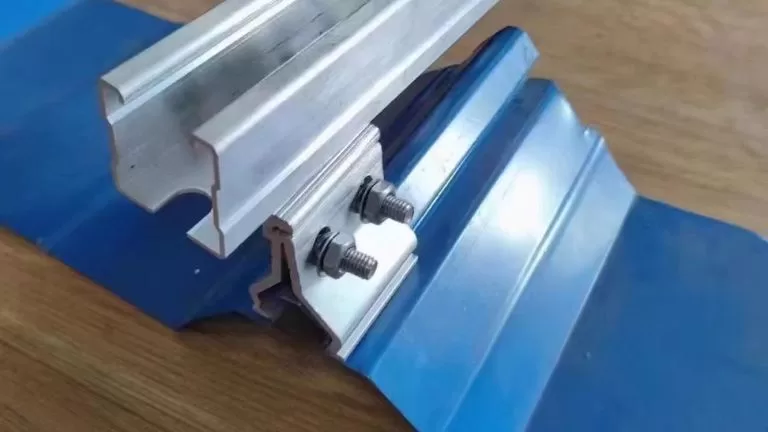
C-Shaped Solar Panel Mounting Rail
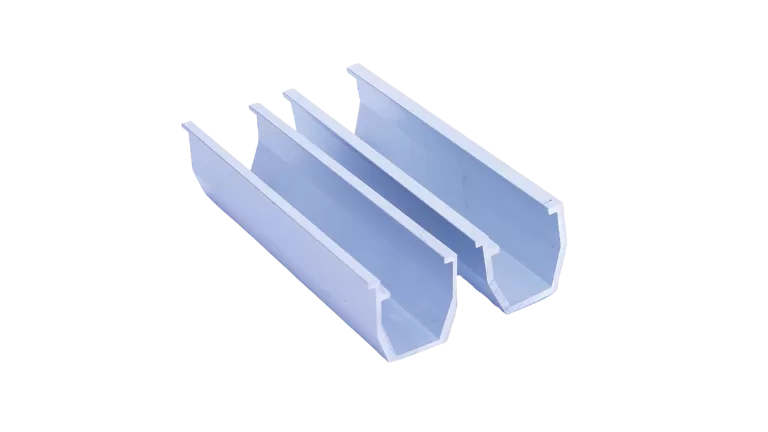
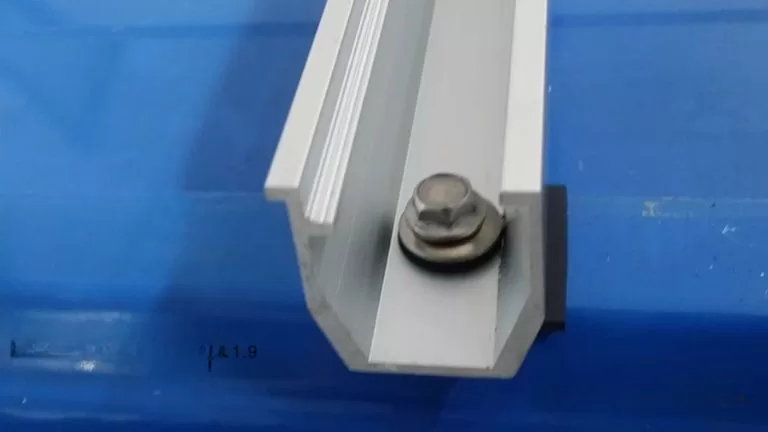
U-Shaped Solar Panel Mounting Rail
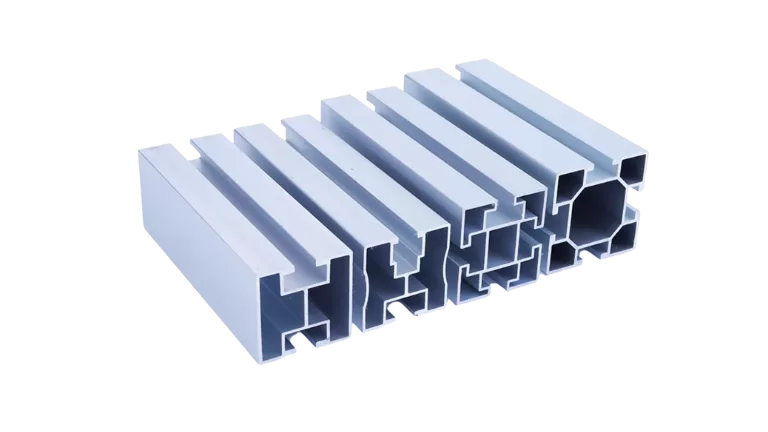
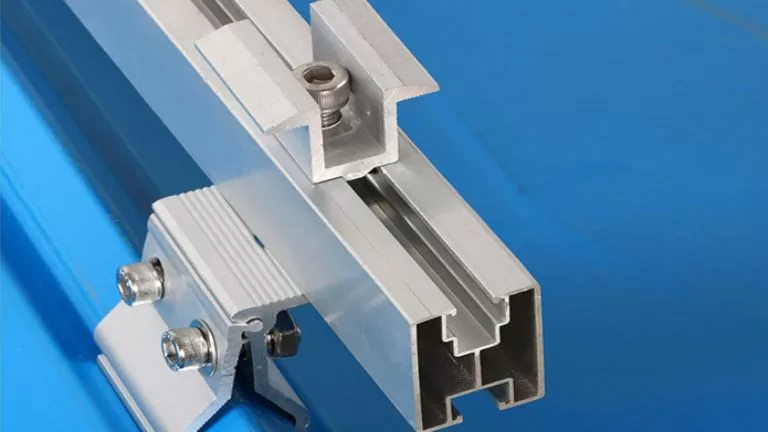
Rectangular Solar Panel Mounting Rail
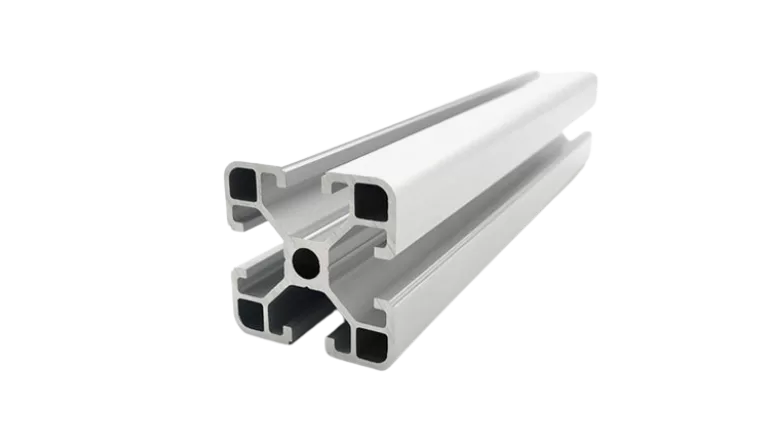
T-Slot for Solar Panel Mounting Rail
Features of Aluminium Mounting Rails
1. Lightweight and High Strength
Aluminium alloy has a low density, making it lightweight and easy to transport and install. Despite its light weight, it provides sufficient strength to support large solar panels and withstand wind and snow loads effectively.
2. Excellent Corrosion Resistance
Aluminium alloy naturally forms a protective oxide layer, making it highly resistant to corrosion caused by rain, moisture, and salt spray. This makes it an ideal material for long-term outdoor use in a variety of environmental conditions.
3. Easy Fabrication
Aluminium alloy offers excellent machinability, allowing it to be easily cut, drilled, and customized into different sizes and shapes to meet the requirements of various solar installation projects.
4. Eco-Friendly and Recyclable
Aluminium is a 100% recyclable material and an environmentally friendly choice. Its recyclability helps reduce waste and minimize carbon footprints, contributing to sustainability initiatives.
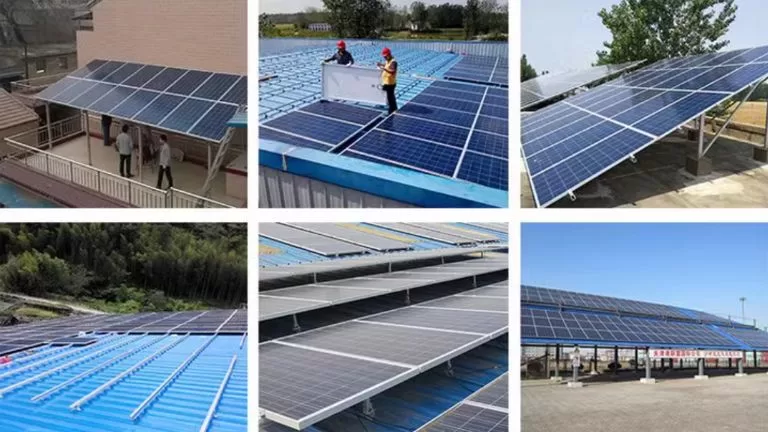
Common Aluminium Alloys for Mounting Rails
1. 6063-T5 Aluminium Alloy
This alloy offers moderate strength and excellent ductility, making it easy to work with. It also has superior anodizing properties, providing a smooth and aesthetically pleasing surface finish. As a result, 6063-T5 is one of the most commonly used materials for solar panel mounting rails.
2. 6005-T6 Aluminium Alloy
Known for its higher strength, this alloy is ideal for applications that require greater load-bearing capacity. It is particularly suited for solar systems that need to support heavier panels or endure more demanding environmental conditions.
3. 5052 Aluminium Alloy
This alloy is highly resistant to corrosion, making it an excellent choice for harsh environments, such as coastal areas or locations with heavy exposure to saltwater and humidity. However, due to its higher flexibility and lower rigidity, it is less commonly used for mounting rails, as it may not provide the same level of stability as 6063 series alloys.
Solar Panel Rails Surface Treatment
To improve the durability and aesthetics of aluminium mounting rails, most rails undergo surface treatment processes. The key surface treatment technologies include:
1. Anodizing
This process enhances corrosion resistance and prevents surface scratches, extending the lifespan of the rails. Common anodized colors include silver (natural finish) and black, which are widely used in solar installations.
2. Powder Coating
Powder coating provides an additional layer of protection and allows for customizable colors to match architectural designs. This makes the rails both functional and visually appealing.
3. Electrophoresis Coating
Electrophoresis coating creates a smooth, durable surface with superior corrosion resistance, particularly in harsh environments such as areas exposed to salt spray. This treatment is ideal for applications requiring high performance and long-term reliability.
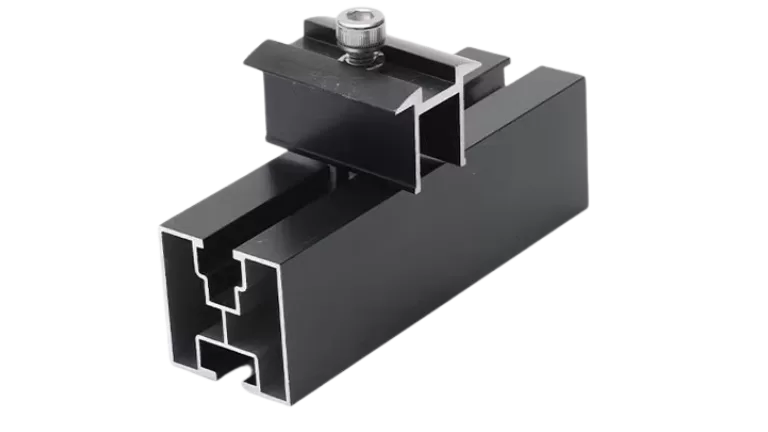
Mounting Accessories
Aluminium solar mounting rails use a variety of matching components to securely fix solar panels frame and support structures. Some commonly used accessories include:
1. Mid Clamps
Used to connect two adjacent solar panels, ensuring they are tightly secured to the mounting rails.
2. End Clamps
Designed to secure the edges of solar panels, providing stability and preventing movement during operation.
3. Bolts and Nuts
Essential for firmly connecting the clamps and rail systems, ensuring the entire installation is robust and durable.
4. Hooks or L-Brackets
Used to connect the roof to the mounting rail system. These brackets are designed to fit various roof types, such as tiled or metal roofs, ensuring stability and adaptability.
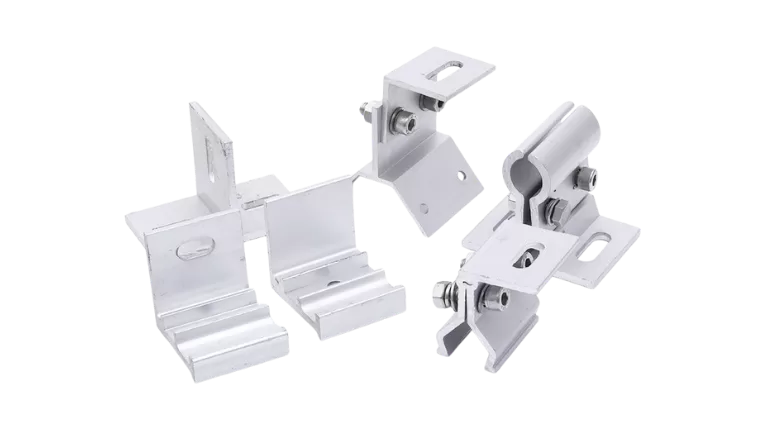
Aluminium Solar Mounting Rails Solution
At HTS NEW MATERIALS, we provide high-quality aluminium mounting rail solutions designed to support diverse solar projects. With advanced production facilities and extensive expertise, we offer durable, customizable, and efficient products for solar installations of all scales.
Why Choose Our Solutions?
- Custom Rail Profiles: Tailored aluminium rail designs to meet your specific requirements with precision and compatibility.
- Enhanced Finishes: Anodizing, powder coating, and electrophoresis to improve durability and aesthetics, with options like silver or black finishes.
- High Precision Machining: Advanced cutting and drilling processes ensure seamless installation and exact dimensions.
- Top-Grade Material: Produced using 6063-T5 aluminium alloy for strength, lightweight properties, and long-lasting corrosion resistance.
Partner with us for reliable and innovative aluminium solar mounting rail solutions that ensure the success of your solar energy projects.
Aluminum Profile Processing Capabilities
As a leading aluminum extrusion manufacturer based in China, we are committed to providing high-quality aluminum profiles for a wide range of industries. Our capabilities start with custom mold design and manufacturing, ensuring precise extrusion shapes that meet the specific needs of our clients. From raw extrusion to surface finishing and advanced machining, our fully integrated manufacturing processes enable us to deliver aluminum profiles that meet exacting standards and cater to the unique requirements of each project.
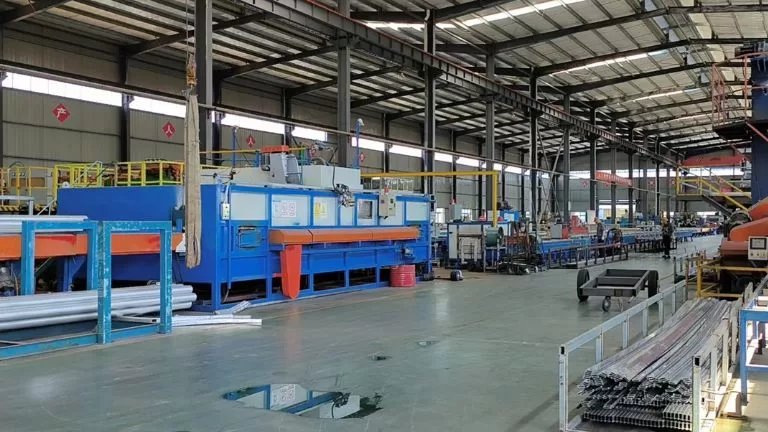 Our production facility houses over 40 advanced extrusion lines, featuring cutting-edge equipment such as a powerful 6000-ton extrusion press. This enables the creation of aluminum profiles in various sizes and forms, ranging from standard industrial applications to specialized products like thermal break profiles for high-end doors and windows. The flexibility of our extrusion capability ensures we can cater to a broad spectrum of industries, including construction and precision engineering.
Our production facility houses over 40 advanced extrusion lines, featuring cutting-edge equipment such as a powerful 6000-ton extrusion press. This enables the creation of aluminum profiles in various sizes and forms, ranging from standard industrial applications to specialized products like thermal break profiles for high-end doors and windows. The flexibility of our extrusion capability ensures we can cater to a broad spectrum of industries, including construction and precision engineering.
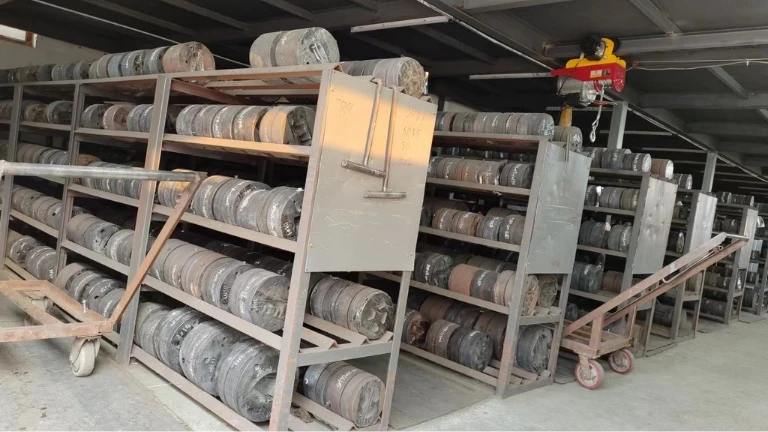 We possess the expertise to design and produce extrusion molds in-house, ensuring precision and efficiency in aluminum profile manufacturing. Our experienced team works closely with clients to develop custom molds based on drawings or samples, ensuring optimal performance for their specific requirements. Typically, the mold production process takes about 7 days, after which we provide samples for client confirmation before beginning full-scale production.
We possess the expertise to design and produce extrusion molds in-house, ensuring precision and efficiency in aluminum profile manufacturing. Our experienced team works closely with clients to develop custom molds based on drawings or samples, ensuring optimal performance for their specific requirements. Typically, the mold production process takes about 7 days, after which we provide samples for client confirmation before beginning full-scale production.
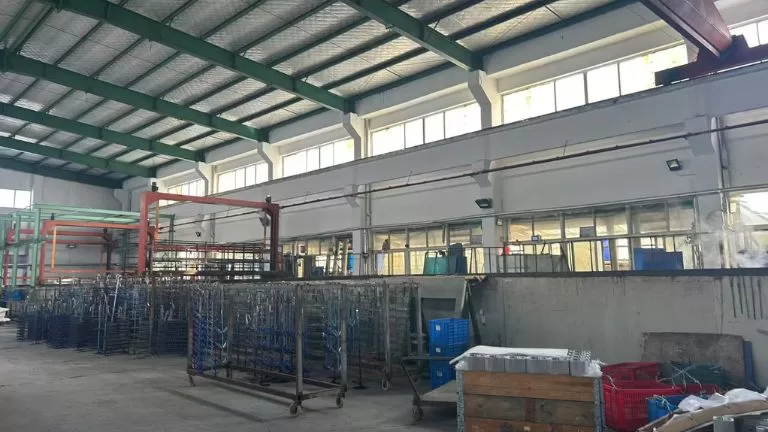
For superior durability and visual appeal, we offer various surface treatment solutions. These include anodizing for added corrosion resistance, powder coating for vibrant finishes, fluorocarbon coating for enhanced weather resistance, and wood grain transfer technology for elegant, natural-looking designs. These treatments are customizable to fit specific aesthetic and functional needs, ensuring that profiles not only perform well but also look exceptional.
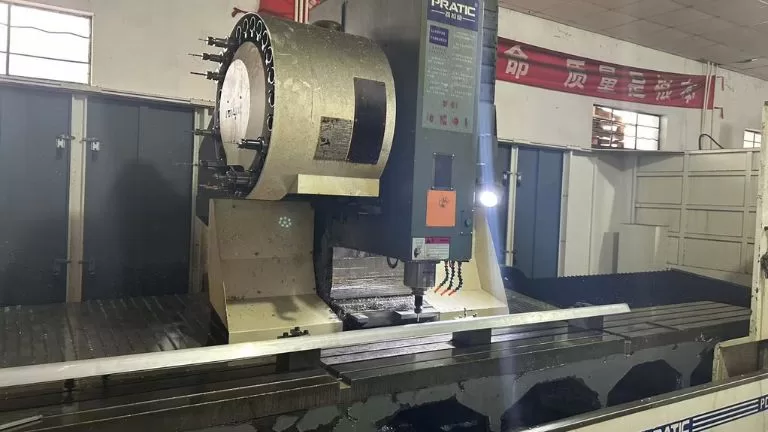
To provide complete aluminum profile solutions, we offer extensive further processing capabilities. Our services include CNC machining, milling, threading, drilling, precision cutting, punching, welding, and assembly. This range of fabrication options allows us to deliver ready-to-use profiles tailored to exact project specifications, offering unmatched flexibility and reliability to our customers.
RFQ of Extruded Aluminum Profile
HTS New Materials, based in Jiangxi Province, China, is a leading aluminum extrusion manufacturer with over 40 advanced production lines and powerful equipment, including a 6000-ton extrusion press. We produce a wide range of aluminum profiles for industries such as construction, industrial applications, and high-end doors and windows, including thermal break profiles. Our services extend to comprehensive surface treatments like anodizing, powder coating, fluorocarbon coating, and wood grain transfer, as well as advanced machining and fabrication capabilities such as CNC machining, drilling, and welding. Committed to quality and innovation, we deliver tailored aluminum solutions to meet the diverse needs of clients globally.
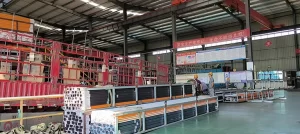
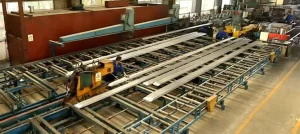
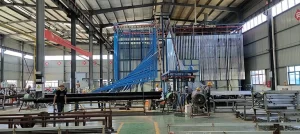
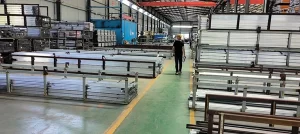

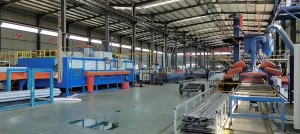
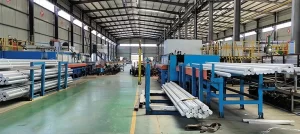
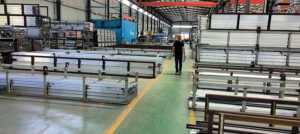
Aluminium mounting rails are versatile and can be used in various installation scenarios to support solar panel systems. Common installation methods include but are not limited to:
Rooftop Installation
- Flat Roofs: Aluminium rails are installed with adjustable tilt brackets to optimize the angle of solar panels for maximum sunlight exposure. This setup is ideal for flat roofs where tilt adjustments are necessary.
- Sloped Roofs: Rails are directly mounted onto tiled or metal roofs, with designs that accommodate different roof types. Aluminium mounting rails are lightweight yet strong, making them suitable for both residential and commercial sloped roofs.
Ground-Mounted Systems
Ground-mounted solar systems often require wind-resistant designs. Aluminium mounting rails provide excellent stability and durability, making them well-suited for harsh environments. These systems are ideal for large-scale solar farms or areas where rooftop installations are not feasible.Solar Carports
Aluminium mounting rails are used in solar carport structures, which are lightweight yet durable. They can support large photovoltaic panels for extended periods, providing both energy generation and functional carport coverage.
For custom aluminum extrusion projects, we accept a variety of drawing formats, including CAD files, STEP files, and PDF files. However, for extrusions that require additional machining processes, it’s recommended to provide STEP files, as they ensure precise 3D modeling for machining accuracy.
While PDF files are acceptable, converting them into CAD drawings may result in the loss of certain details, requiring us to manually redraw the design, which could increase lead time. For the fastest and most accurate quotation, we recommend providing CAD files (e.g., DWG/DXF) and STEP files to ensure efficient design evaluation and pricing.
Mold fees are an essential part of the custom aluminum extrusion process. Since every order requires a uniquely designed mold tailored to specific requirements, these molds cannot be used for other products. Therefore, the mold fee is necessary and non-negotiable.
We require 100% upfront payment of the mold fee before mold development begins to ensure timely production. However, as a token of appreciation for your support, we offer a refund of the mold fee or equivalent discounts once the order reaches a certain production volume. Specific policies can be discussed based on your order volume and collaboration details.
Our minimum order quantity (MOQ) varies depending on the size of the product. For smaller-sized products, the MOQ is typically 500kg, while for larger-sized products, it is 2 tons.
We will specify the exact MOQ requirements during the quotation process. If your order quantity does not meet the MOQ, we can still arrange production, but an additional fee will be applied to cover mold preheating and production setup time. Rest assured, this extra fee will be reasonable, and we aim to keep it as minimal as possible to ensure smooth cooperation.
Packaging can be customized according to your needs. Options include using protective film or paper to separate and protect the surface, or foam film for additional surface protection. Products can be palletized or packed into cartons, and the quantity per pallet or carton can be specified by the customer.
The standard packaging involves bundling several pieces together with plastic wrap and then securing them onto pallets. Any packaging requirements beyond the standard will be accommodated, and the associated costs will be clearly provided to the customer.
Mold production typically takes 7 days. After the sample is confirmed, producing a full container load of 26 tons generally requires 14 days for extrusion alone. If surface treatment is required, an additional 3 days will be needed. For machining, extra time will be required depending on the complexity and volume of the machining work. The exact additional time for machining will be determined based on the specific processing requirements.
Aluminum profiles are naturally corrosion-resistant due to the formation of a thin, protective oxide layer when exposed to air or water. This oxide layer is stable and self-repairing, meaning that even if the surface is scratched or cut (such as at exposed ends or during processing), the aluminum will not rust or corrode like iron or steel. Instead, the exposed areas will quickly form a new oxide layer, providing continuous protection against further oxidation.
With proper design, installation, and maintenance, aluminum profiles can last for decades, even in challenging environments. For example, untreated aluminum can easily withstand 20-30 years in outdoor applications, while profiles with surface treatments like anodizing or powder coating can last even longer, often exceeding 50 years. This makes aluminum an excellent choice for applications where durability and long-term performance are essential.
The price of aluminum profiles consists of several components: raw material costs, extrusion processing fees, surface treatment fees, machining costs, and additional packaging fees. Among these, the cost of aluminum as a raw material tends to fluctuate frequently, while other fees remain relatively stable. Due to these fluctuations, our quotations are typically valid for 7 days.
Pricing can be structured in different ways depending on the product and requirements. It can be calculated by weight (e.g., cost per ton), by length (e.g., cost per meter), or by piece (e.g., cost per unit). For products involving extensive machining, such as heat sinks, pricing is generally calculated on a per-piece basis to accurately reflect the additional processing costs. This flexible pricing approach ensures the quote is tailored to the specific needs of the customer.
We can manufacture aluminum profiles in compliance with technical requirements that meet European standards (EN), American standards (ASTM/AA), or other standards as specified by the customer. Custom production is tailored to ensure that the profiles meet the specific standard requirements requested.
Our production equipment is designed for the metric system. If the drawings provided are in the imperial system, we will convert them into metric units for production to ensure accuracy.
It is important to note that while we can machine imperial-threaded holes for fasteners, if you require us to supply matching imperial fasteners, they may not always be available in stock. Custom orders for imperial fasteners typically require a large volume for production. Please consider this when planning your project.
The items listed on this page come with existing molds and are readily available in stock. All products are made from high-quality 6063-T5 aluminium alloy, ensuring excellent durability, strength, and corrosion resistance.
